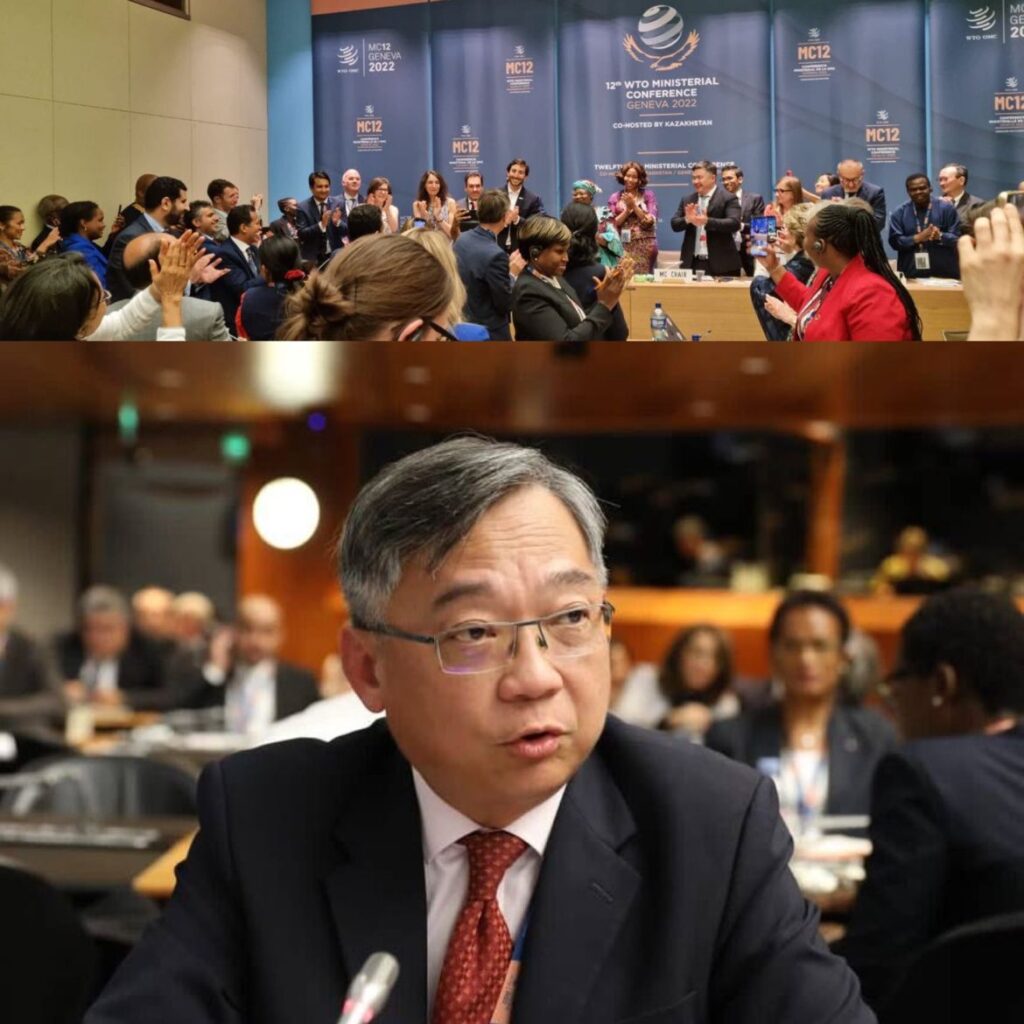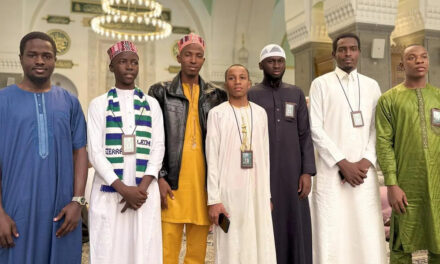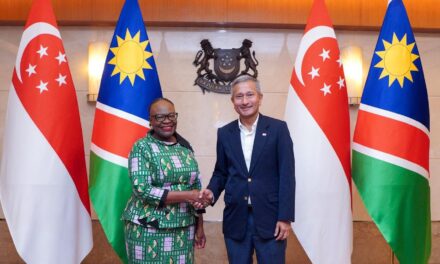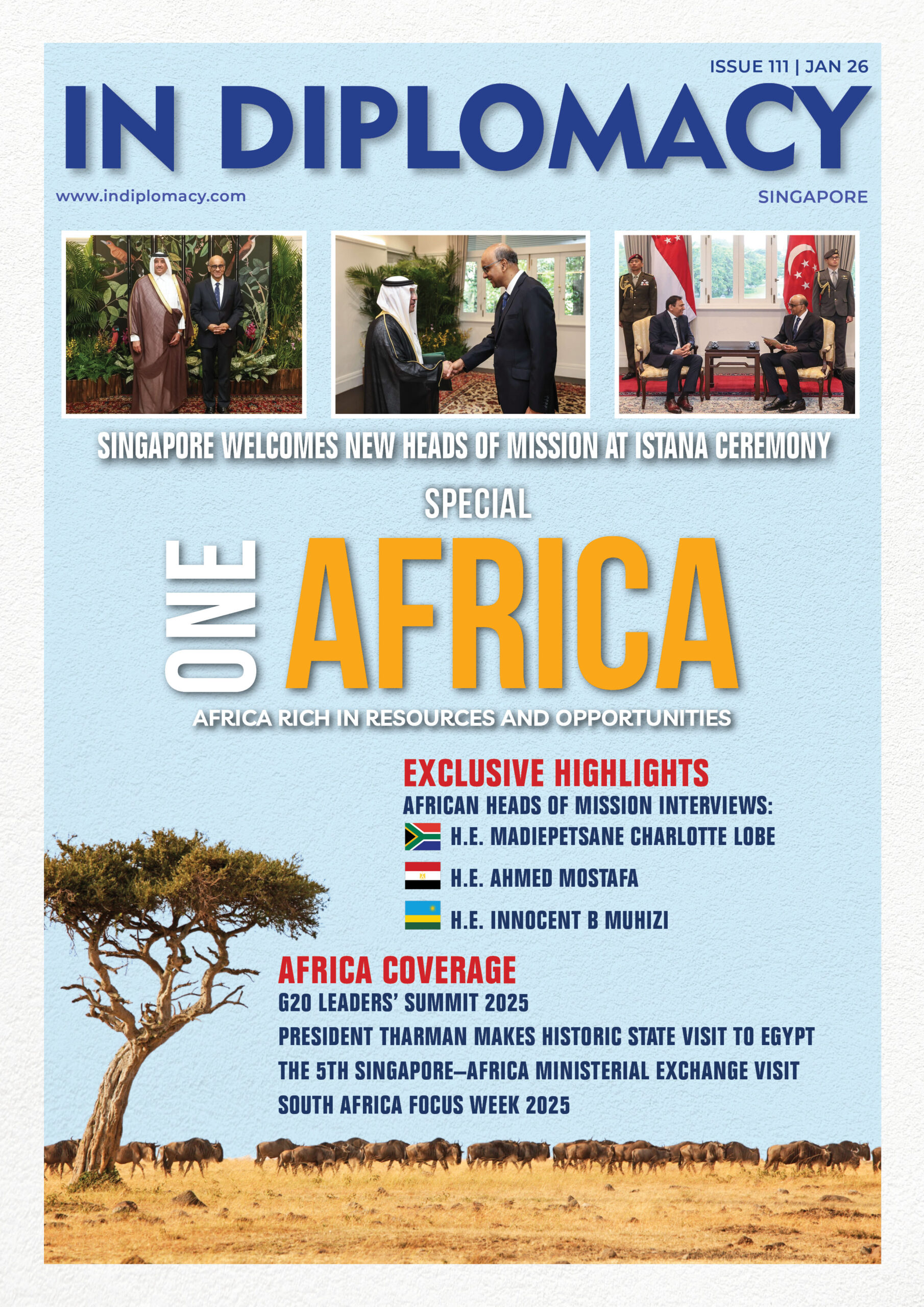
Minister Gan Kim Yong discusses shifts in the global landscape and outlines key strategies for navigating an evolving world
Minister Gan Kim Yong delivered keynote remarks at the Next STEP Global Conference 2023 Welcome Dinner on November 5, 2023. The event, attended by esteemed guests including Mr. Danny Quah, Dean of Lee Kuan Yew School of Public Policy, and Mr. Adam Posen, President of the Peterson Institute for International Economics, focused on the theme of “reconstructing ties in a fragmenting world.”
Addressing the audience, Minister Gan highlighted three significant shifts in the global landscape that governments, businesses, and individuals must contend with. Firstly, he discussed the transition from a rules-based international order to a landscape increasingly characterized by power politics. Geopolitical tensions and conflicts, such as the war in Ukraine and rising US-China tensions, have contributed to a more complex global operating environment. These developments have also had notable effects on global trade, impacting businesses worldwide.
The second major shift outlined by Minister Gan pertained to the evolving rules of trade. While there was once broad international consensus in favor of globalization and cooperation, recent years have witnessed a prioritization of domestic and national security concerns. Countries are increasingly focused on “near-shoring” and “friend-shoring” of supply chains, with advanced economies investing heavily in domestic production, particularly in strategic industries.
Minister Gan also emphasized the urgent need for a transition to a zero-carbon world. Climate change, he stressed, is an existential challenge that demands collective commitment and political will. Governments must implement measures to not only transition their own countries, but also collaborate globally to achieve collective climate goals.
In response to these shifts, Minister Gan proposed three key strategies. Firstly, he emphasized the importance of maintaining a multilateral and rules-based international order, advocating for frameworks that respect the sovereignty and independence of all countries. He cited examples such as the Comprehensive and Progressive Agreement for the Trans-Pacific Partnership (CPTPP) and the Indo-Pacific Economic Framework (IPEF) as models for innovative trade cooperation.
Secondly, Minister Gan urged the exploration of new areas of cooperation to deepen regional and international integration, particularly in addressing global challenges like climate change. Examples included the Green Economy Agreement with Australia and the development of an ASEAN Power Grid to facilitate cross-border electricity trading.
Lastly, Minister Gan underscored the crucial role of trust in a world marked by protectionism and power politics. Building trust with domestic constituents and international partners alike is fundamental to fostering collaborative partnerships and ensuring economic stability and development.
In conclusion, Minister Gan expressed confidence that despite the challenges of an increasingly troubled and fragmented world, opportunities exist for the global community to rebuild ties, deepen trust, and develop open, inclusive, and global architectures.
















